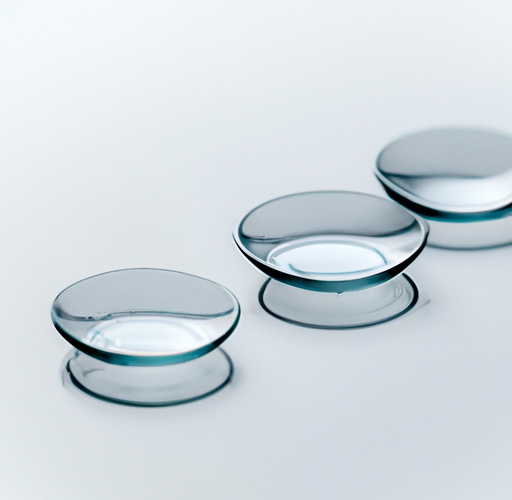Contacts for Coneheads: What you need to know
So, you’ve got a conical cornea. We’re not here to judge, we’re just here to help. If you’re one of the millions of people with this fun little issue, finding the right contact lenses can be a challenge. But fear not coneheads, we’ve got you covered!
First things first, let’s talk about what this “conical cornea” thing even means. Essentially, it’s when your cornea (the clear front part of your eye) is shaped more like a cone than a sphere. This can cause vision issues like distorted or blurred vision, sensitivity to light, and even headaches.
But before you go running off to the optometrist, let’s discuss the different types of lenses that might work for you:
1. Rigid Contact Lenses: Also known as gas permeable lenses, these lenses are made of a hard plastic material that holds their shape and helps neutralize the conical cornea shape. While they can take some getting used to, they’re great at correcting vision issues that come with this condition.
2. Hybrid Contact Lenses: As the name suggests, these lenses are a combination of soft and rigid lenses. They use a soft outer edge to provide comfort and stability, while the rigid center helps correct vision issues.
3. Scleral Contact Lenses: These lenses are a bit more specialized and are reserved for those with severe conical cornea conditions. They’re larger than other contact lenses and fit over the entire cornea, creating a “scleral” lens that vaults over the conical shape of the cornea.
Now that you know a bit more about the different types of contact lenses available, let’s talk about the prescription process. The first step is getting a comprehensive eye exam to determine the severity of your condition and determine which type of contact lens will work best for your unique situation.
Your optometrist will then measure your cornea to get the right fit for your contact lenses. This is important as an ill-fitting contact lens can cause irritation and discomfort.
Lastly, be sure to follow the care instructions for your lenses, and never sleep in them! Sleeping in your contact lenses can cause irritation, infection, and even damage to your eyes.
So there you have it, coneheads! With a little help from your friendly neighbourhood optometrist and the right type of contact lenses, you’ll be seeing clearly in no time.

